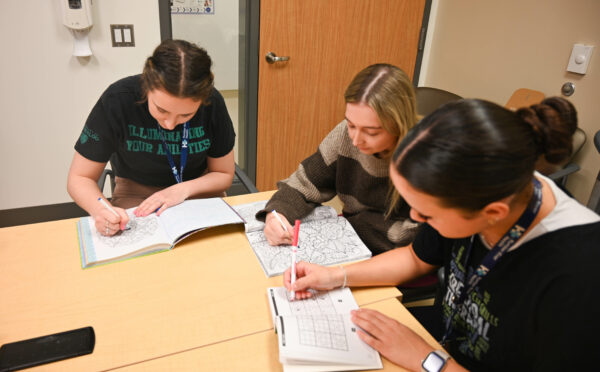Why be a RecT?
24
Feb
2024
Recreation Therapy, also known as Therapeutic Recreation, is a rewarding career that has a positive impact on the lives of patients. The Recreation Therapists (RecTs) at Humber River Health (Humber) are knowledgeable and compassionate individuals who use recreation, leisure, and play as tools to engage patients in meaningful therapeutic activities. Through such activities, patients experience improved levels of independence and optimized quality of life.
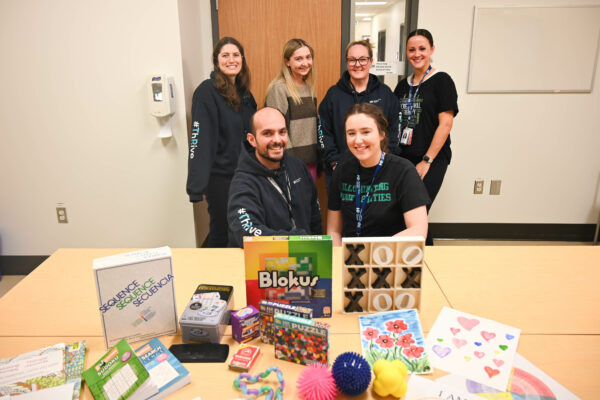
The RecTs from Humber’s Wilson Hospital, Finch Campus, and Church Campus provided insight into why they love the work they do.
Stephen Corradino: I love being a Recreation Therapist because of the meaningful connections I can make with patients daily. My career is extremely rewarding and meaningful, as I utilize my leisure passion to advocate for patients’ leisure autonomy. I teach patients what purposeful leisure and recreation are through patient-centred, trauma-informed care to allow patients to strive for and accomplish their goals. Seeing patients become goal-oriented and future-motivated for incorporating leisure into their daily routines is one of the many highlights of my job. I am constantly learning about patients through their leisure and witness the ability that leisure and recreation have on creating a better quality of life for patients every day.
Amanda Pipino: Being a Recreation Therapist allows me to use my personal leisure interests to show my patients how recreation and leisure can be transformative. As a yogi and travel and photography enthusiast, I embed these interests in the programs in the Mental Health and Addictions Unit to show my patients how to use their personal interests to improve their quality of life. Recreation Therapy is a patient-centred, strengths and evidence-based practice that uses purposeful interventions, enabling patients to return home educated about using their leisure interests to promote wellness. I strive to help my patients find meaning in their leisure to improve their overall well-being.
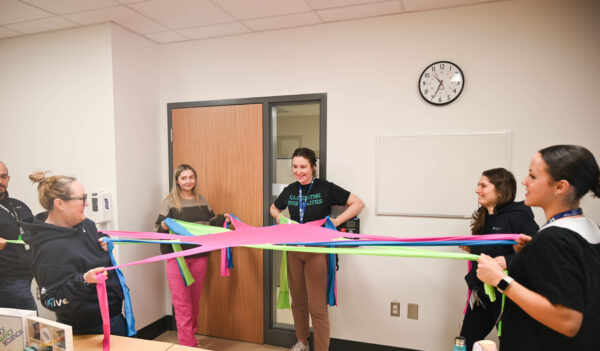
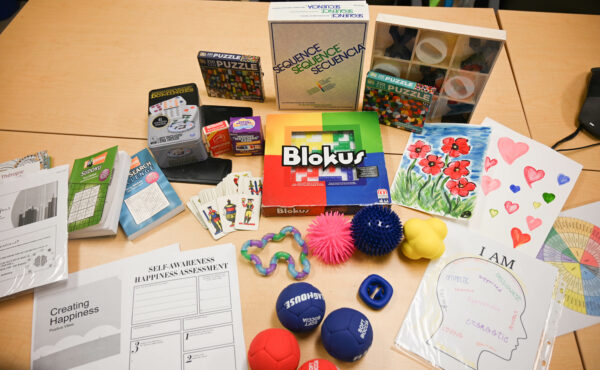
Laura Barkin: What I love most about being a Recreation Therapist is learning about our patients as people while finding and utilizing their abilities. It is amazing to see the impact that using a personalized strength-based approach can have on quality of life as it impacts all five domains of well-being: physical, cognitive, social, emotional, and spiritual. Seeing the impact of evidence-based practice never gets old. I love seeing a patient proudly smiling or being calmer, relaxed and engaged.
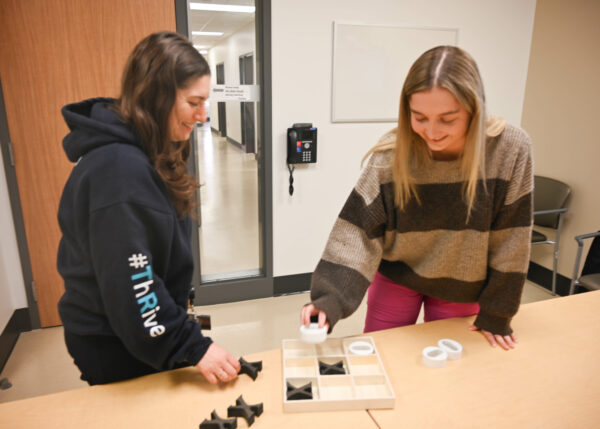
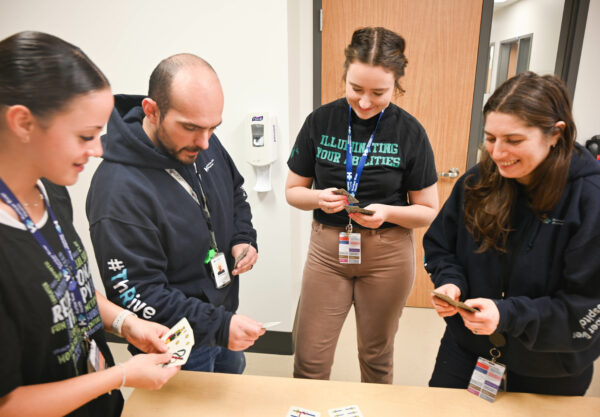
Meagen Kerr: What I love most about being a Recreation Therapist is having the opportunity to establish meaningful connections and relationships with my patients while providing individuals with purposeful activity engagement. While practicing patient-centred care, our patients feel a sense of accomplishment, fulfillment, enjoyment, and happiness through meaningful recreation and leisure interventions. Using a holistic approach aimed at targeting the five domains of wellness ensures that we are providing care to benefit our patients’ overall well-being. Seeing the joy that recreation and leisure participation bring to my patients is extremely rewarding.
Tierney Mikula: I love that recreation is not only transformative for patients but also helpful in assisting other members of the allied team and nursing staff with optimal patient-centred care. Having moments of joy through recreation during illness or discomfort is key. Recreation Therapy is not only a job but a passion for myself, as I get to engage individuals in what they love or loved to do on an individualized basis. Seeing progression in self-esteem, self-determination, and overall well-being with patients is the ultimate reward for the work our profession does. Also, having moments of compassion and transforming perspective to an optimistic place outside of Humber’s walls is amazing to witness. Being able to have an impact that is grounded in the therapeutic use of everyday interests as medicine is invaluable.
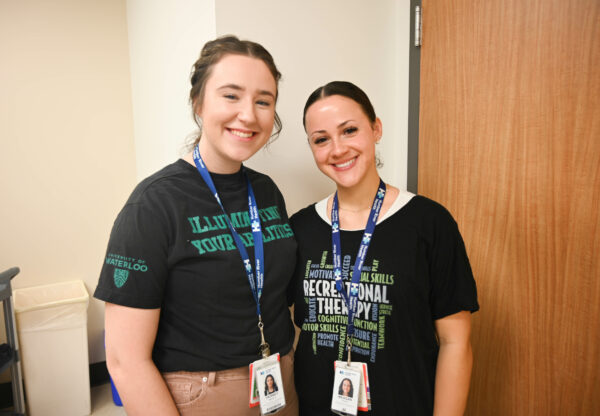
Kathryn Oakley: What I love most about being a Recreation Therapist is being able to provide opportunities for patients to embrace and exercise the unique skills that they have developed and connected with throughout their lives. Experiencing a situation in which a patient feels a sense of success and leadership is one aspect of the field that brings me joy. By engaging in Recreation Therapy, I have been able to see patients in another light as we take a different approach to their therapy; cheering them on and learning from them as they showcase and exercise their valued skills and abilities, an opportunity not often provided in a hospital setting. Assisting with and observing patients engage in activities that are meaningful to them in such a limited environment provides meaning to my work as a Recreation Therapist.
Meaghan McGill (Dalhousie CTRS Internship Student): As a student in Recreation Therapy working in the Mental Health and Addictions Unit, I learn from experienced and passionate Recreation Therapists who allow me to put my learnings into practice. I love learning about and building rapport with patients and working with my supervisors to create and implement new leisure education programs based on patient goals and interests. What I love most about being a student is being able to learn at a leading educational institution that values compassion, professionalism, and respect. Coming into Humber every day and having patients share with me their meditative artwork they worked on the night before or telling me a new leisure interest they want to try, reminds me of how special it is to work in this field and keeps my passion alive.
